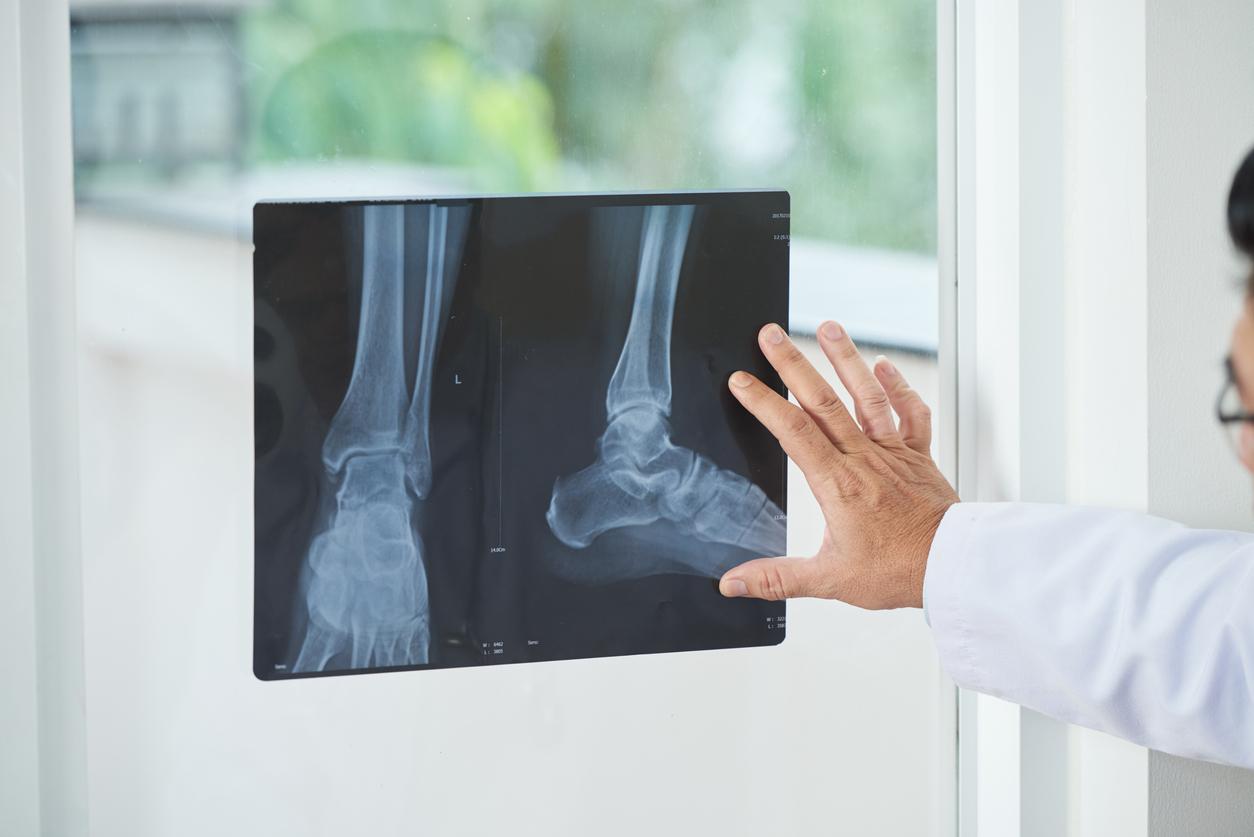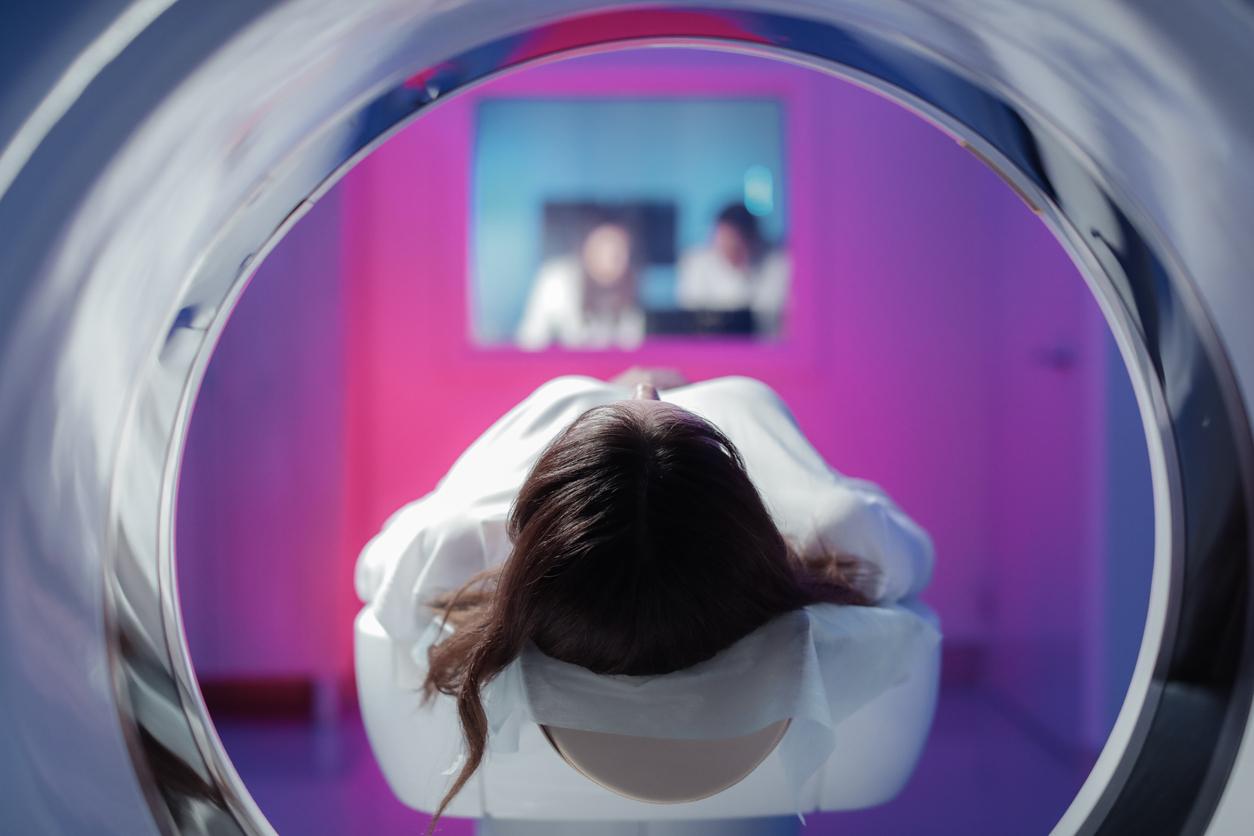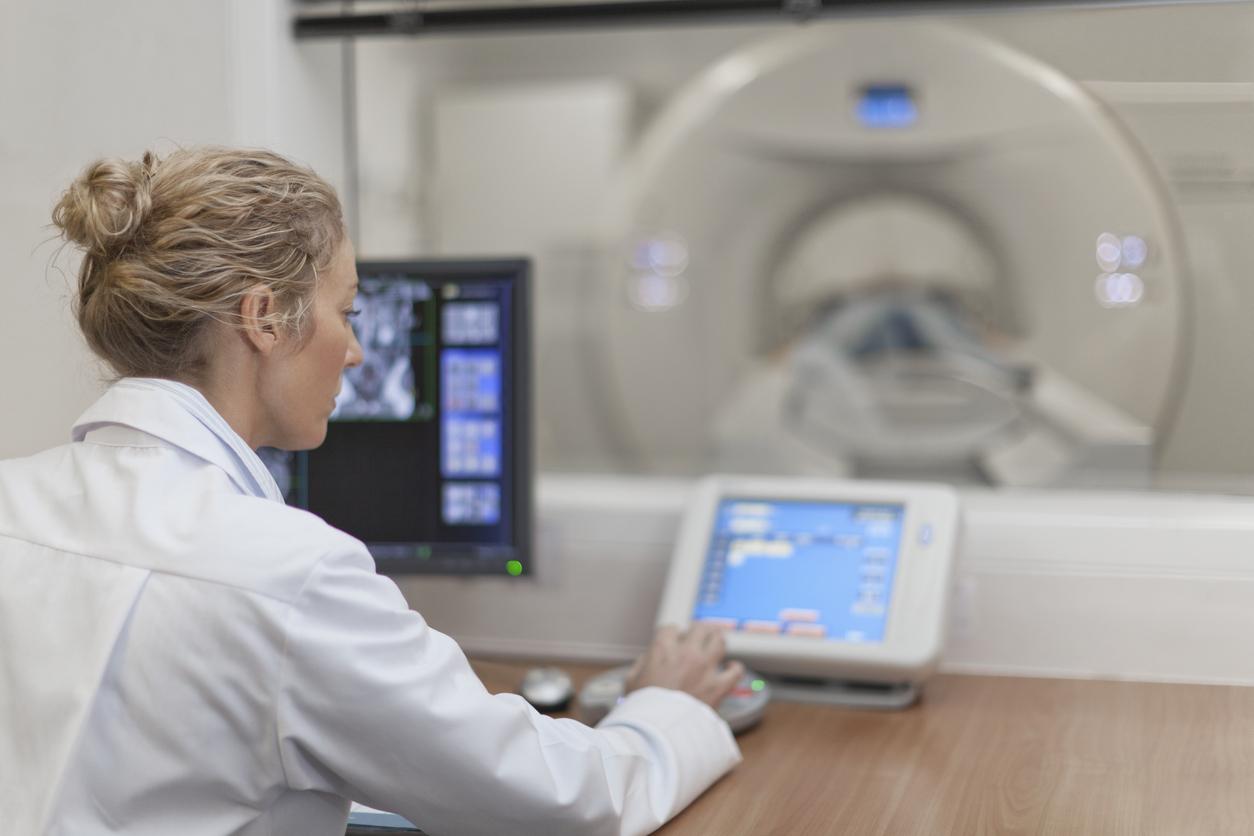American researchers claim to have developed a portable MRI with the same reliability and safety as other MRIs.

- American researchers have developed an MRI that can be transported inside hospital rooms as well as in intensive care units.
- This innovation thus makes it possible to carry out brain imaging of patients who cannot be transported or to limit the risks for highly contagious patients.
- According to this first clinical study, almost all of the scans of the small MRI are consistent with those of conventional MRIs.
Brain imaging accessible everywhere, including in the resuscitation room. Currently, the weight, volume and above all the safety protocol around this major medical tool in neurological diagnosis is only accessible under restricted conditions. Thus people in intensive care – difficult to transport – or people suffering from highly contagious infectious diseases, such as Covid-19 making the transport of the person as well as the decontamination of the place difficult for the medical team, have difficulty accessing it. Faced with this observation, American researchers from Yale University with the help of scientists from the Massachusetts General Hospital of Harvard University have found a way to create a small transportable MRI. So it will be the machine that will come to the sick and not just the reverse. This prototype has been tested, and the results of this clinical study have been published in the review JAMA Neurology last september 8.
“Recent advances in MRI technology have enabled data acquisition at low magnetic field strengthexplain the authors of the scientific article. MRI scanners operating at low field strength allow for open geometry design designs that can facilitate patient handling and positioning. They are compatible with nearby ferromagnetic materials, allowing scanning outside of the controlled-access environment of an MRI suite.” The device is equipped with a permanent magnet thus allowing any cooling. It only requires an electrical outlet and compliance with a safety perimeter of 79 cm around the magnet. This portable MRI, however, needs the strength of a self-contained motor as well as drive capability to be moved.
Encouraging results
A technical and ergonomic advance, but is it reliable? To verify this, the researchers conducted clinical tests. Between October 2019 and June 2020, 50 patients – including 20 with Covid-19 – agreed to receive radiation from this portable MRI. In the 30 non-Covid-19 patients, the researchers claim to have had portable MRI results that were 97% concordant with those of conventional imaging – computed tomography and MRI. Flawless except “ofa diffuse subarachnoid hemorrhage that has not been observed“. However they note that their portable MRI enabled the detection “of a previously undetected small-volume infarction in a patient with cardiac arrest who was too unstable to be transported to conventional imaging.“For patients with Covid-19, the scientists were only able to verify their results for 40% of them. On this sample, their portable MRI confirmed the classic imaging.
They hope that their experiment will reach “fill an important gap in the field of obtaining neuroimaging for patients with severe disease and potential neuropathology.” “VSThis experience demonstrates that portable low-field MRI can be successfully deployed in critical care settingsthey write. This approach may hold promise for portable assessment of neurological injury in other scenarios, including the emergency department, mobile stroke units, and resource-limited settings.“
.

















